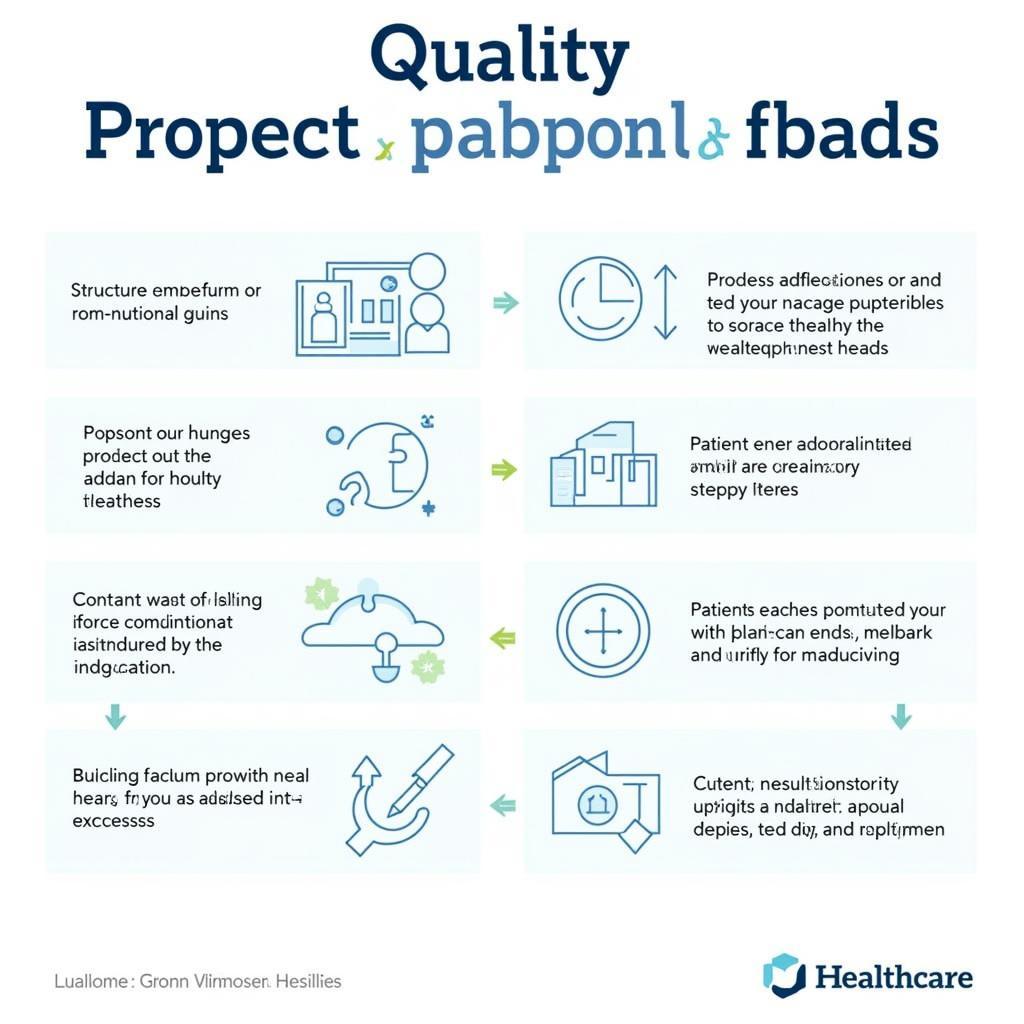Quality measurement tools are essential for evaluating and improving healthcare services. These tools provide valuable data that helps identify areas for improvement, enhance patient safety, and optimize resource allocation. Understanding these tools is crucial for anyone involved in healthcare, from clinicians to administrators.
Understanding the Need for Quality Measurement in Healthcare
Why do we need quality measurement tools? Simply put, they help us ensure patients receive the best possible care. These tools allow us to track performance, identify trends, and implement changes that lead to better outcomes. They provide a framework for accountability and transparency, fostering trust between patients and providers.
Types of Quality Measurement Tools in Healthcare
Several types of quality measurement tools exist, each serving a specific purpose. These include:
- Structure measures: These assess the resources and facilities available within a healthcare system. Examples include the number of board-certified physicians, the availability of advanced technology, and the physical environment of care facilities.
- Process measures: These evaluate the steps taken in providing care, such as the percentage of patients receiving recommended vaccinations or the timeliness of antibiotic administration for pneumonia.
- Outcome measures: These focus on the results of care, such as patient survival rates, complication rates, and readmission rates.
- Patient experience measures: These assess patients’ perceptions of their care, including their satisfaction with communication, pain management, and the overall care experience.
- Composite measures: These combine multiple individual measures to provide a comprehensive assessment of quality.
 Types of Quality Measurement Tools in Health Care
Types of Quality Measurement Tools in Health Care
Specific Examples of Quality Measurement Tools
Let’s delve into some specific examples of quality measurement tools commonly used in healthcare:
- HEDIS (Healthcare Effectiveness Data and Information Set): A widely used set of performance measures that assess the quality of care provided by managed care organizations. HEDIS covers a broad range of conditions and services, including preventive care, chronic disease management, and behavioral health.
- CAHPS (Consumer Assessment of Healthcare Providers and Systems): Surveys that collect patient feedback on their experiences with healthcare providers and health plans. CAHPS surveys provide valuable insights into patient satisfaction and can help identify areas for improvement in patient-centered care.
- PQRS (Physician Quality Reporting System): A reporting program that encourages physicians to report data on quality measures related to their practice. Participation in PQRS can lead to financial incentives and helps track and improve the quality of physician services.
- AHRQ Quality Indicators (Agency for Healthcare Research and Quality): A set of measures used to assess the quality of hospital care. These indicators cover a range of conditions and procedures and are used to identify areas for improvement in patient safety and outcomes.
How Quality Measurement Drives Improvement
Quality measurement is not just about collecting data; it’s about using that data to drive meaningful improvements in healthcare. By analyzing quality measures, healthcare organizations can identify areas of strength and weakness, develop targeted interventions, and track the effectiveness of those interventions over time.
The Future of Quality Measurement in Healthcare
The field of quality measurement is constantly evolving. With advancements in technology and data analytics, we can expect to see even more sophisticated and powerful tools emerge in the future. These tools will provide even greater insights into the quality of care and will help us continue to improve the health and well-being of our communities.
Conclusion
Examples of quality measurement tools in health care are diverse and crucial for improving patient care and outcomes. By utilizing these tools, the healthcare industry can ensure better services, enhanced safety, and a more patient-centered approach. These tools are essential for achieving the goal of high-quality, effective healthcare for all.
FAQ
- What is the purpose of quality measurement in healthcare?
- What are some common examples of quality measures?
- How are quality measures used to improve care?
- What is the difference between structure, process, and outcome measures?
- How can patients access quality data about healthcare providers?
- What is the role of technology in quality measurement?
- What are the future trends in healthcare quality measurement?
Need help with Car Diagnostics? Contact us via WhatsApp: +1(641)206-8880, Email: [email protected] or visit us at 910 Cedar Lane, Chicago, IL 60605, USA. We offer 24/7 customer support. Also, check out our other helpful articles on car diagnostics on our website, DiagFixPro.

Leave a Reply